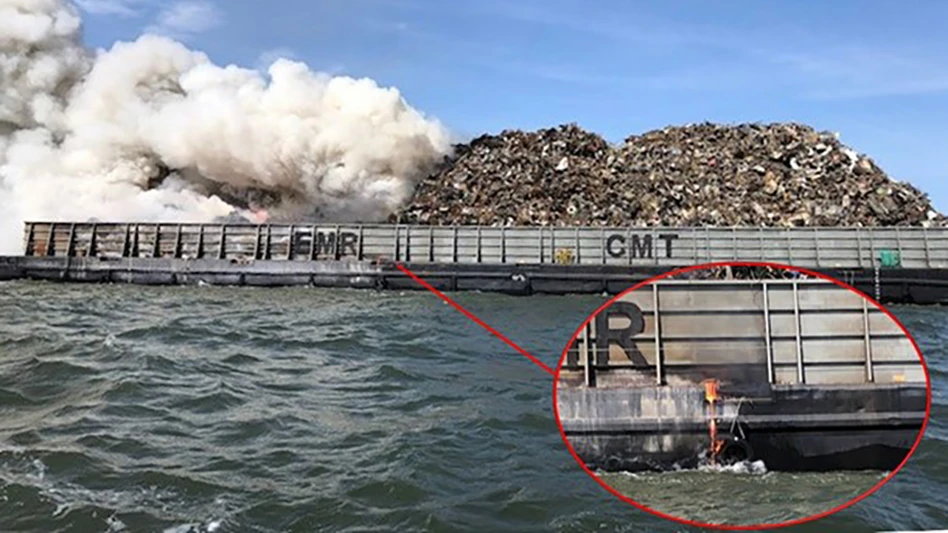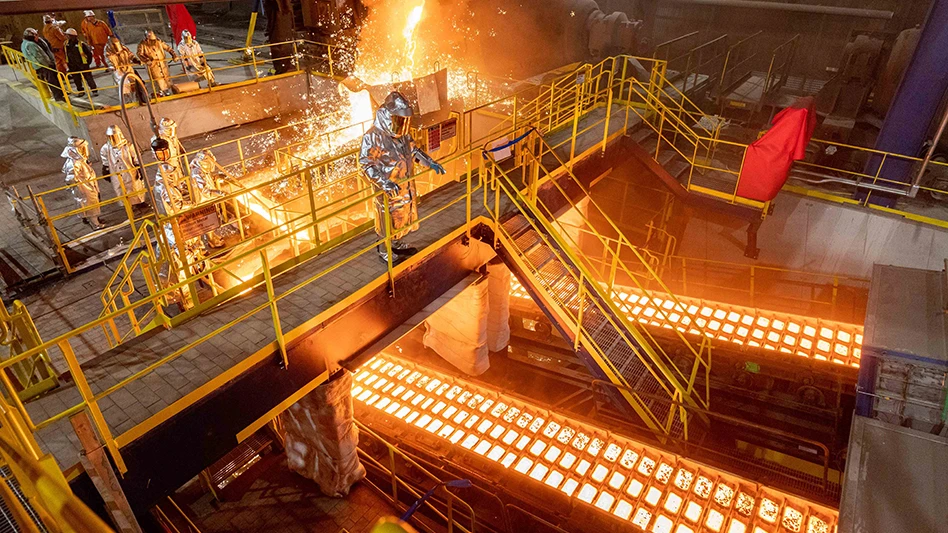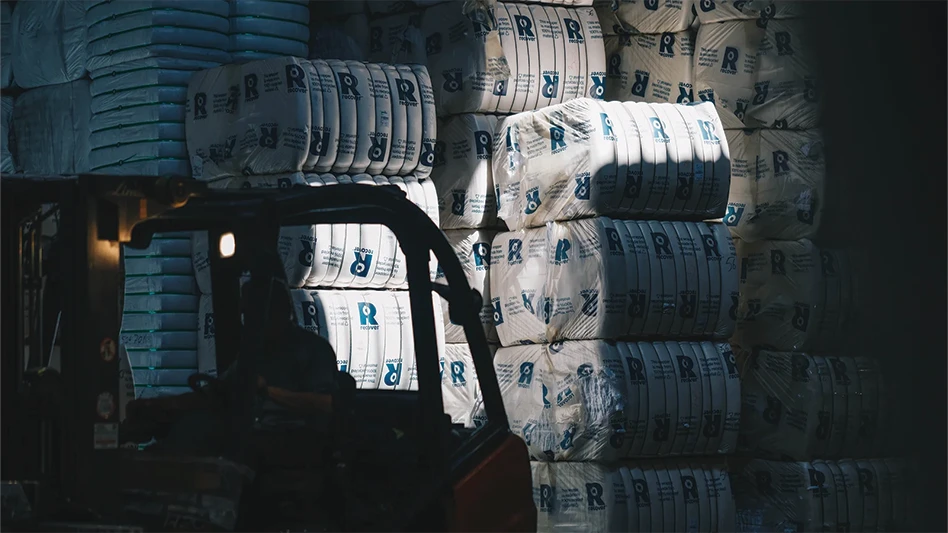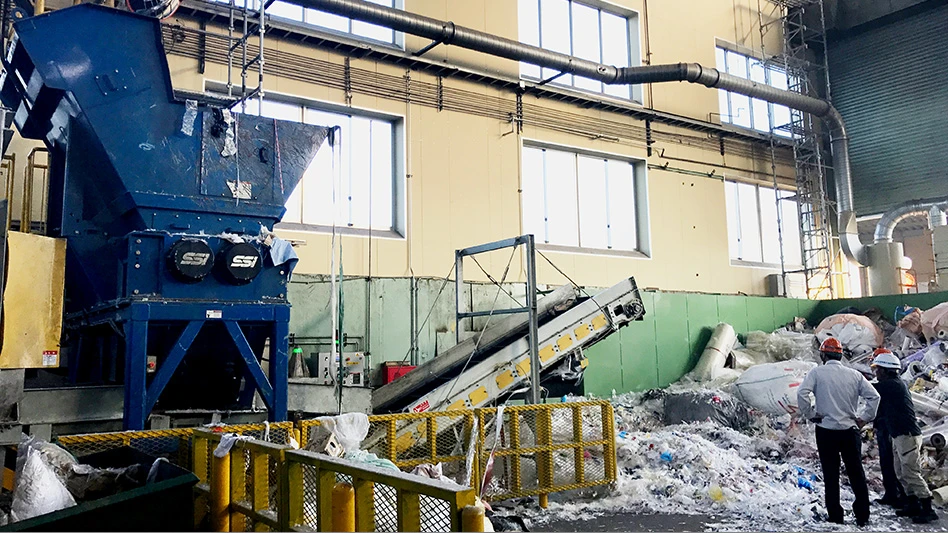
Photo courtesy of the National Transportation Safety Board
The National Transportation Safety Board (NTSB) has issued a warning stating lithium-ion batteries and other possible ignition sources “could pose a fire safety issue in the transportation of scrap materials as cargo” in barge vessels.
The NTSB writes that scrap metal cargo typically is nonhazardous and poses a low fire risk, but also points to several recent fires involving such cargo.
In particular, the agency points to a January 2022 incident in which a shoreside pile caught fire in Newark, New Jersey. The NTSB also says two international vessels carrying scrap material experienced cargo fires in 2022, and in 2017, the Japan Transport Safety Board investigated a scrap metal fire in a vessel’s cargo hold in Fukuoka City, Japan.
Most recently, the agency has issued a report about an incident in the Delaware Bay waterway on the East Coast. “On May 23, 2022, the towing vessel Daisy Mae was towing a loaded scrap metal barge northbound in Delaware Bay when fire was discovered on board the barge,” the NTSB writes.
Although that fire burned for 26 hours before it was fully extinguished, no injuries or pollution were reported tied to the incident, however, damage to the barge was estimated at $7 million, according to the NTSB.
The agency's report, issued May 4, determined the probable cause of that fire was the ignition of a combustible material by an undetermined source, “such as sparking from shifting metallic cargo, self-heating of metallic or nonmetallic cargo, improperly prepared vehicles and appliances or damaged lithium-ion batteries.”
The NTSB says that even with supplier acceptance agreements and quality assurance personnel visually inspecting scrap metal, metallic and nonmetallic hazardous materials are often present within shoreside scrap metal piles and could inadvertently be loaded onto vessels. Such materials elevate the risk of fires and can lead to "intense fires."
“Once scrap metal is loaded onto a barge, it is difficult for a towing vessel crew to visually inspect the cargo while underway," the NTSB says.
The agency says for shippers to minimize the risk of fire, qualified cargo-surveying personnel can assist the vessel’s captain before and during loading operations to limit the presence of hazardous, combustible material in scrap metal, and adds that thermal imagery also can be an effective tool in identifying hot spots in scrap metal cargo at shoreside facilities.
More information about NTSB findings on scrap fires can be found here.
Latest from Recycling Today
- Biden officially blocks Nippon Steel’s acquisition of US Steel
- Highland Sanitation awarded solid waste and recycling contract in Wanamingo, Minnesota
- Ecobat gathers support for California permit renewal
- RecyclX platform designed to provide materials transparency
- Turkish mills sampled wide scrap market in 2024
- GLE Scrap Metal acquires interest in Mallin Cos.
- 2024 marks strong year for Van Dyk
- Recycled metal portrayed as former dictator’s fiefdom





